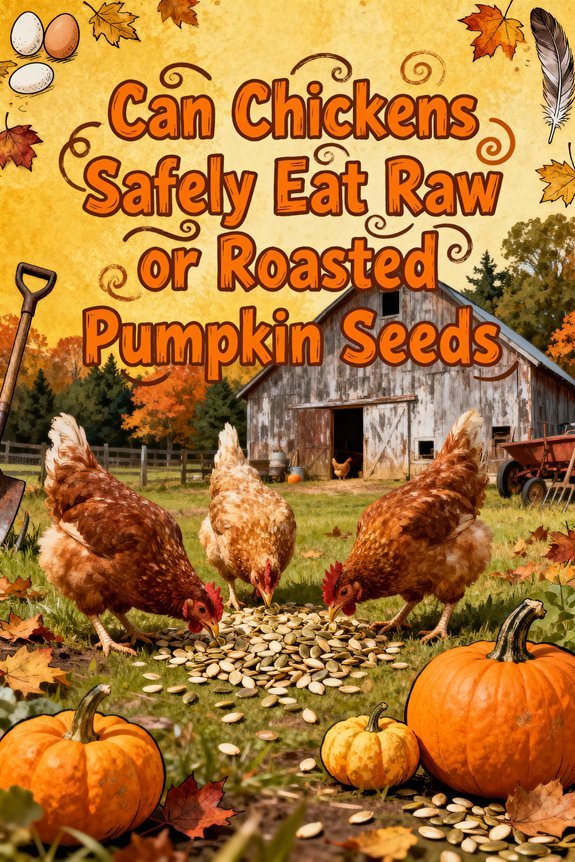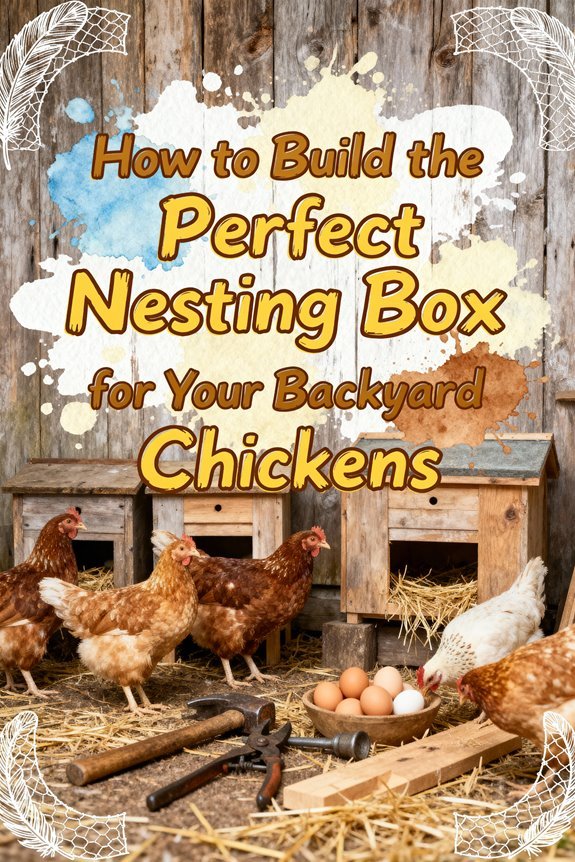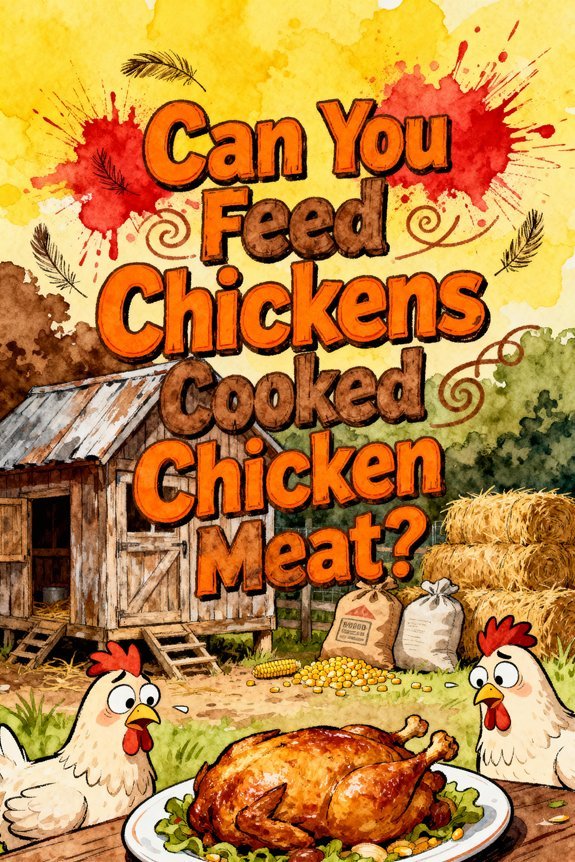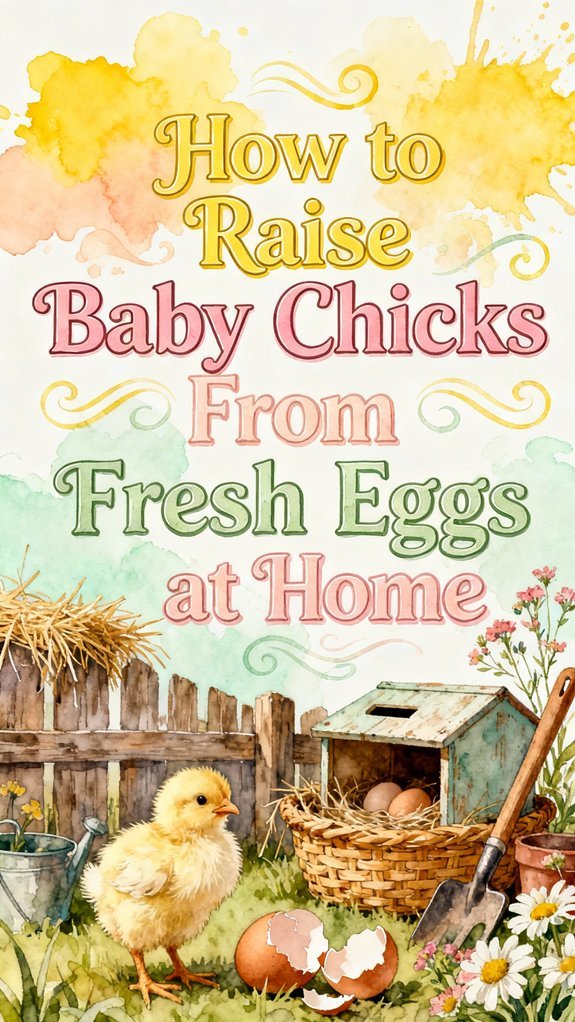You can safely feed your chickens both raw and roasted pumpkin seeds as a nutritious treat. These seeds pack crucial protein for feather growth, healthy fats for energy, and important minerals like zinc and magnesium. While popular belief suggests pumpkin seeds act as natural dewormers, there’s no scientific evidence supporting this claim. Serve them whole without seasonings or salt, and limit portions to prevent nutritional imbalances. Understanding proper feeding methods guarantees your flock gets maximum benefits from this healthy supplement.
The Nutritional Benefits of Pumpkin Seeds for Your Flock
While commercial feed forms the foundation of a chicken’s diet, pumpkin seeds offer an exceptional array of nutrients that can greatly enhance your flock’s health. The nutrient breakdown reveals they’re packed with protein, essential for feather growth during molting, and healthy fats that provide energy, especially during colder months.
These seeds deliver essential minerals like zinc, magnesium, and phosphorus, supporting bone development and enzyme functions. For immune support, their vitamin E content acts as a powerful antioxidant, helping protect against common poultry diseases like coccidiosis and bronchitis. You’ll also find beta-carotene, which converts to vitamin A, critical for reproduction and egg quality. When you include pumpkin seeds in your chickens’ diet, they’ll benefit from enhanced immune function, improved disease resistance, and better overall health outcomes. During molting season, adding pumpkin seeds can help meet your chickens’ increased protein needs effectively.
Safe Ways to Feed Pumpkin Seeds to Chickens
Although pumpkin seeds offer excellent nutritional benefits, you’ll need to follow specific preparation and feeding guidelines to guarantee your chickens consume them safely. You can serve the seeds raw or roasted, but never add seasonings, salt, or other additives. When implementing feeding techniques, offer seeds whole, as chickens efficiently process them with their gizzards.
For ideal results, cut pumpkins into wedges to improve seed access, and only use fresh pumpkins free from rot or mold. Like maintaining a clean coop to prevent stress and disease, proper seed storage in cool, dry conditions prevents spoilage and maintains nutritional value. While some believe pumpkin seeds fight worms, whole seeds alone are not proven effective as natural de-wormers in chickens. If you’re roasting seeds, do so without any additives. Remember to treat pumpkin seeds as an occasional supplement rather than a primary food source, and monitor your flock for any digestive issues when introducing this treat.
Debunking the Deworming Myth
Despite their widespread reputation as a natural dewormer, pumpkin seeds lack scientific evidence supporting their effectiveness in treating chicken parasites. This common deworming misconception can lead to delayed proper treatment and increased worm loads in your flock.
While laboratory studies show promise using concentrated pumpkin seed extracts, simply feeding whole or roasted seeds doesn’t provide enough active compounds to effectively kill worms. Rather than medicinal benefits, pumpkins and their seeds provide healthy fats and protein for optimal chicken health. The process requires specific extraction methods using solvents or water to concentrate the medicinal properties.
Don’t rely on natural remedies like pumpkin seeds as your sole deworming strategy. Instead, use proven, chicken-safe dewormers recommended by experts. While pumpkin seeds make excellent nutritious treats, they’re not a substitute for proper parasite control. Regular worm checks and conventional treatments remain essential for maintaining flock health.
Proper Serving Methods and Portions
Feeding pumpkin seeds to chickens requires specific serving methods and portion control to maximize their nutritional benefits. You can offer them either raw or roasted seeds without added seasonings, and there’s no need to remove the shells as chickens can process them effectively in their gizzards. Mix the seeds into their regular feed or serve them separately as treats. Seeds provide chickens with healthy fats and fiber that support their overall wellness.
When it comes to portion control, remember that pumpkin seeds should supplement, not replace, balanced commercial feed. Offer them just a few times weekly to prevent nutritional imbalances. For mature chickens, whole seeds work well, but you’ll need to crush them for younger birds. Always inspect seeds for mold or damage before serving, and introduce them gradually to monitor your flock’s tolerance.
Health Advantages for Egg Production and Growth
When integrated into a chicken’s diet, pumpkin seeds significantly enhance egg production and growth through their rich nutritional profile. You’ll notice improved growth performance as these seeds provide essential proteins, zinc, and magnesium that support bone development and structural health. They’re particularly beneficial during molting phases, aiding feather regrowth and recovery. Like dried mealworms, they deliver excellent protein content for optimal health.
The seeds’ impact on egg production is considerable, enhancing both quality and nutritional value. They’ll increase beneficial omega-3 fatty acids in egg yolks while decreasing the n-6/n-3 PUFA ratio by 15.52%. This modification improves the eggs’ health benefits for consumers. Additionally, the seeds’ high mineral content provides immune support and helps maintain consistent laying patterns, while their antioxidants boost stress resilience and overall vigor in your flock. Like other protein-rich supplements, pumpkin seeds can be part of a balanced diet that supports optimal egg production without increasing aggressive behaviors.
Important Safety Considerations and Risks
Although pumpkin seeds offer nutritional benefits, they present several important safety risks that require careful management. You’ll need to watch for overfeeding risks, as their high fat content can lead to weight gain and nutritional imbalances in your flock. Don’t let seeds replace their balanced feed – they should only serve as occasional treats.
Mold contamination poses a significant threat, as contaminated seeds can produce harmful mycotoxins. You’ll need to store seeds properly and check for spoilage before feeding. Be aware that whole seeds may present choking hazards, especially for smaller birds. Pumpkin seeds can provide essential zinc and magnesium that support immune function and bone health. While some promote pumpkin seeds as natural dewormers, there’s no scientific evidence supporting this claim. Instead, rely on veterinary-approved treatments for parasite control. Watch for signs of individual sensitivities, including digestive upset or decreased feed intake.







